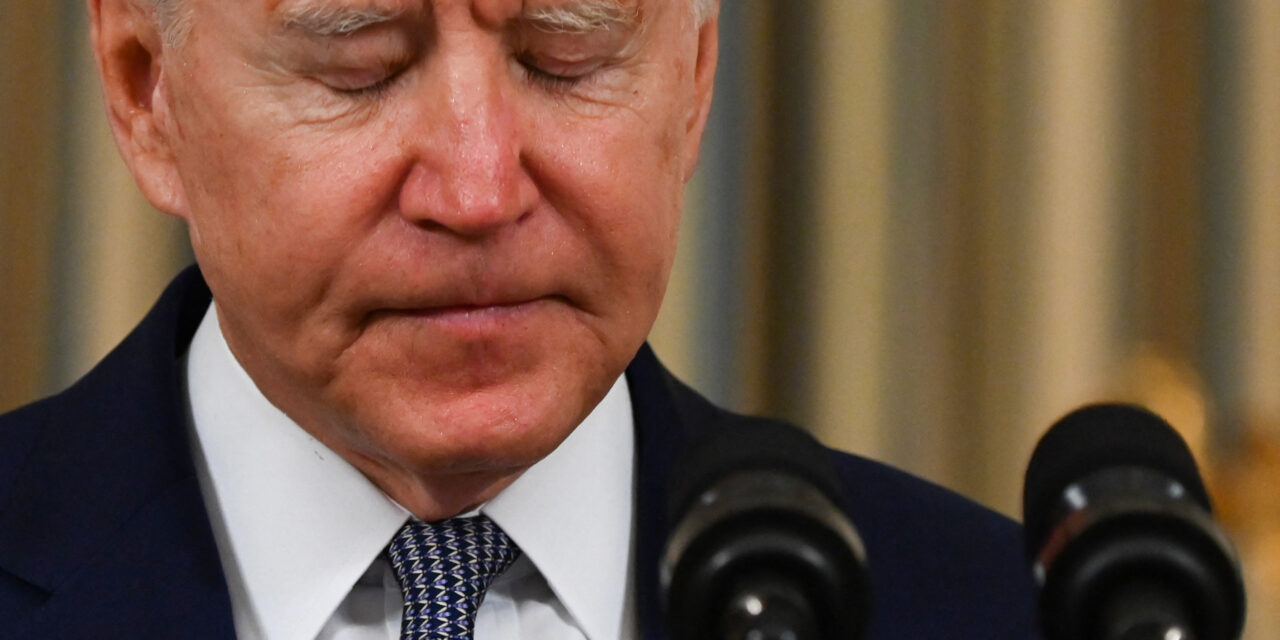Joe Biden does not negotiate, the Republicans do not allow the superpower enthroned on an ever-increasing debt mountain to borrow money. According to Finance Minister Janet Yellen, if there is no new agreement, they will no longer be able to guarantee all the government's obligations by the beginning of June.
Although hardly anyone has noticed until now, the United States has been doing something for the past six months that it hasn't done in a very long time:
he only spent as much money as he had.
In January, the USA reached its legally defined debt ceiling, its national debt is 31.4 trillion dollars (10,639 trillion forints).
Since then, the American central budget cannot take out new loans, so it finances its expenses from current tax revenues and reserves. The horribly indebted United States' long-established solution to this problem is to raise the debt ceiling again and again, which, however, requires the consent of both houses of Congress - and since the House of Representatives is in Republican hands, the opposition does not want to do President Biden this favor for free.
Republicans: Stop wasting money!
According to the traditions of American democracy, Republicans - especially from the opposition - do not like to raise the debt ceiling and emphasize the importance of responsible, frugal management.
Republican House Speaker Kevin McCarthy - who, by the way, became the leader of the House of Representatives with a tiny Republican majority at the cost of significant compromises, thereby becoming a hostage of the party's conservative wing -
made the raising of the debt ceiling subject to strict conditions,
For a $1.5 trillion debt ceiling increase, he expects $4.5 trillion in spending cuts.
And God forbid, in the case of the two large spending packages submitted under the pretext of covid and inflation, which the Democratic majority in Congress pushed through in the face of Republican opposition even when both houses were in their hands.
McCarthy's plan would nominally, i.e. ignoring inflation (!) reduce many government expenditures to last year's level, i.e. by 9 percent, and then for the next ten years, it would maximize their increase at 1 percent per year. It would sweep the rest of the 5.2 trillion dollars earmarked for covid aid between 2020-2022 into the budget, withdraw Joe Biden's 400 billion dollar student loan cancellation proposal - which is still before the Supreme Court due to constitutionality concerns - and at the same time invest 80 billion dollars in to make the work of the federal tax office more efficient.
A particularly exciting point for Europe is that the McCarthys would also withdraw financial incentives for renewable energies, electric cars and other technologies introduced with the Inflation Reduction Act (IRA) -
these cause a massive competitive disadvantage for European industry.
The Republicans would also tighten the conditions for access to aid: according to their proposal, childless beneficiaries of state health insurance for low-income people and Medicaid would have to work at least 80 hours a month, or participate in retraining or community service. The same would apply to recipients of the SNAP food assistance program. In addition, Republicans slipped into the bill an earlier bill to support fossil fuels, which stalled in the Democratic-controlled Senate in March.
Democrats: Here's the credit, but fast!
Treasury Secretary Janet Yellen wrote to Senate leaders on Monday to inform them of the dire state of the budget. He wrote to them that due to the lower than expected performance of tax revenues, “according to our best estimates
by the beginning of June, we will no longer be able to guarantee all the government's obligations, in fact, this may even happen as early as the first of June,
if Congress does not raise or suspend the debt ceiling by then”.
The Treasury Secretary also warned legislative leaders that waiting until the last minute to make a decision in this direction could "cause significant damage to business and consumer confidence, increase taxpayers' short-term borrowing costs, and negatively affect the credit rating of the United States."
With the latter's comment, he referred to the case in 2011, when the administration of Barack Obama and the Republican legislature managed to agree on raising the debt ceiling only 72 hours before the state bankruptcy began, which is why Standard & Poor's for the first time in the history of the USA downgraded the country's solidly stable AAA rating.
Yellen was even more specific at an event for businessmen in California. He said, “Congress must vote to raise or suspend the debt ceiling. You must do so unconditionally. And don't wait until the last minute."
President Joe Biden also expressed his annoyance at the Republican attitude and announced that he will meet with the Republican Speaker of the House, but
not by any chance to negotiate the conditions for raising the debt ceiling, because in his opinion "there is no negotiation".
Senate Democratic leader Chuck Schumer also condemned McCarthy's bill: "The discussion of spending cuts belongs to the budget negotiations, it's not a bargaining chip in relation to the debt ceiling," said Schumer, who believes that "the president should stop bargaining, stop taking hostages." , and he should sit down with the Democrats to pass a clean (ie: no conditions - ed.) law to avoid bankruptcy".
Would America go bankrupt?
The House of Representatives, sweating blood, accepted the McCarthys' proposal last Wednesday by a vote of 217-215, and the speaker sat back satisfied: he declared, "we raised the debt ceiling and sent it to the Senate, we did our job." For McCarthy personally, it was especially challenging to keep his faction together for the important vote; for four republican representatives, the proposal was not tough enough, they voted against it, and if there had been one more, the text would have failed.
In the Democratic-led Senate, the Republican proposal, which torpedoes many Democratic political priorities, will obviously not pass unchanged, but the Republicans have designated their negotiating position:
According to CNN's analysis, with an unchanged debt ceiling, state bankruptcy will occur either at the very beginning of June, or - if the public finances somehow falter until June 15, the payment of second-quarter tax advances, when it will receive significant money - at the end of summer.without conditions, there will certainly be no debt ceiling increase here.
Meanwhile, the situation weakens the US dollar, which has already suffered serious damage from China, India, the Arab states along the Persian Gulf, and Russia switching to yuan, ruble, and rupee accounts. Since the beginning of April, more than 1.1 dollars have been paid for the euro, and the weakening of the dollar helped a lot in the strengthening of the forint, which also includes the budget uncertainty. This situation is therefore advantageous for Hungary in the short term - however, we would not be happy if the bankruptcy of the USA dragged the markets and banking systems of half the world with it.
László Bogár: Orbán's unique narrative is possible because he really is an avatar
Featured image: Jim WATSON/AFP












